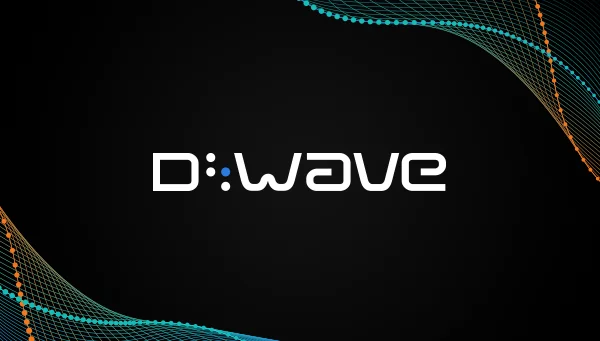Insider Brief
- Grayscale has filed with the SEC to launch a Quantum Computing ETF that tracks companies developing or supporting quantum technologies.
- The ETF will passively follow the S&P Kensho Global Quantum Computing Technologies Index, though the index’s full composition is not publicly detailed.
- The fund is scheduled to become effective 75 days after the May 29, 2025 filing, but no official trading date has been announced.
Grayscale has filed with the U.S. Securities and Exchange Commission to launch the Grayscale Quantum Computing ETF, a fund designed to track companies developing or supporting quantum computing technologies across global markets.
The news of Grayscale’s filing comes just days after VanEck announced its European Quantum ETF.
Information filed with the SEC suggests the ETF will seek to mirror the performance of the S&P Kensho Global Quantum Computing Technologies Index. As of publication, details about this specific index do not appear to be publicly available on S&P Dow Jones Indices’ website. It will likely include companies involved in developing quantum computing hardware and essential components such as superconducting materials, quantum chips, and cryogenic infrastructure.

According to the SEC filing submitted under Form N-1A, the ETF will be a new series under the Grayscale Funds Trust and is scheduled to become effective 75 days after the May 29, 2025, registration date. However, no official trading date has been announced.
Reflects Growing Interest in Quantum
Grayscale’s entry into the ETF market targeting quantum computing reflects growing investor interest in emerging technologies that could upend traditional computing. The SEC filing shows that the fund will take a passive management approach and primarily invest in equity securities or depositary receipts that meet the criteria of the index, which includes a minimum market capitalization of $100 million for new constituents and $50 million for current ones.
The fund will be listed on NYSE Arca, allowing individual investors—including retail traders and institutions—to buy and sell shares with one another in what’s known as the secondary market. Only authorized participants, typically large institutional firms, can interact with the fund itself in the primary market by creating or redeeming shares in large blocks known as Creation Units. The ETF will charge management fees and other annual operating expenses, though specific fee percentages have yet to be disclosed in the current version of the prospectus.
It’s likely that the S&P Kensho index underlying the ETF follows a methodology similar to other Kensho indexes, using a two-tiered classification system that separates “core” companies—those with significant revenue or strategic focus in quantum computing—from “non-core” firms with more peripheral involvement. Core firms receive a 20% overweight during index weighting. The index rebalances quarterly, with adjustments based on revenue disclosures, regulatory filings, and market liquidity constraints, according to SEC documentation.
According to the SEC filing, eligible companies span both developed and emerging markets. In addition to pure-play quantum firms, the index also includes software developers working on quantum algorithms, firms offering “Quantum-Computing-as-a-Service,” and companies producing components such as quantum simulators or cryptography tools.
The final composition of the Grayscale Quantum Computing ETF will depend on the index’s reconstitution rules and market conditions. Comparable ETFs and public disclosures suggest it may include a mix of firms involved in quantum hardware, software, and enabling infrastructure. U.S.-listed quantum computing firms such as IonQ, Rigetti Computing and D-Wave Quantum are strong candidates, given their direct engagement in quantum processor development and public disclosures. Technology giants like IBM, Google parent Alphabet, Microsoft, Amazon, Intel, and Nvidia may also appear in the fund due to their active research programs, cloud platforms, or chip design work supporting quantum simulations and hybrid systems. Honeywell is likely to be included through its controlling interest in Quantinuum, one of the most advanced quantum hardware companies.
Beyond core developers, the ETF may include equipment manufacturers like Keysight Technologies, Oxford Instruments, and Teledyne Technologies, which supply essential quantum infrastructure such as cryogenic systems and precision sensors. International exposure could come from firms like Alibaba, Fujitsu and Toshiba, all of which have disclosed quantum computing or communication initiatives in recent years. The fund’s construction methodology, as filed with the SEC, prioritizes companies with meaningful revenue, strategic focus, or public commitment to quantum technologies—criteria likely to shape its inaugural holdings.
Risks and Uncertainty
Grayscale warns that investing in the fund entails risks, especially since many quantum computing companies are pre-revenue and face high uncertainty regarding commercialization. The filing highlights risks specific to the emerging and volatile nature of quantum technology, as well as broader risks related to foreign currency fluctuations, depositary receipts, and market concentration in the information technology sector. As of April 30, 2025, over 67% of the underlying index was allocated to information technology companies.
The fund will be sub-advised by Vident Asset Management, according to the filing, which also manages a range of other ETF products. Portfolio managers include industry veterans with experience in trading equity, derivatives, and frontier market portfolios. Vident will execute the fund’s investment strategy, while Grayscale Advisors, LLC retains responsibility for oversight and compliance.
The SEC filing notes that the ETF is structured as a non-diversified fund under the Investment Company Act of 1940, allowing it to allocate a larger portion of assets to a smaller number of companies than diversified funds. However, Grayscale intends to comply with diversification requirements to maintain its status as a regulated investment company for favorable tax treatment.
As with other ETFs, the Grayscale Quantum Computing ETF will expose investors to potential tracking errors due to expenses and practical challenges in replicating the index. The fund may also use representative sampling rather than full replication, particularly when trading costs or liquidity constraints make precise replication difficult.
Strategic Context
Grayscale’s proposed ETF represents one of a small but growing number of investment vehicles offering focused exposure to quantum computing—a sector many consider foundational to the so-called Fourth Industrial Revolution. The move aligns with broader trends in thematic ETFs targeting technologies such as artificial intelligence, blockchain, and space infrastructure.
Analysts and quantum watchers are also intrigued with this filing because Grayscale has a track record of building financial products around emerging technologies before they reach mainstream adoption. The firm helped legitimize digital assets for institutional investors through its early Bitcoin and crypto trusts, a strategy it now appears to be extending to frontier computing sectors like quantum.
If approved by the SEC, the fund would add to Grayscale’s growing suite of products designed to give retail and institutional investors exposure to frontier technologies. The firm is best known for its cryptocurrency investment products but has increasingly moved toward a broader portfolio of tech-focused financial instruments.
The ETF has not yet commenced operations and does not currently have performance data. Once trading begins, information on net asset value, premiums, and discounts will be published on the fund’s official website, as noted in the SEC filing.














